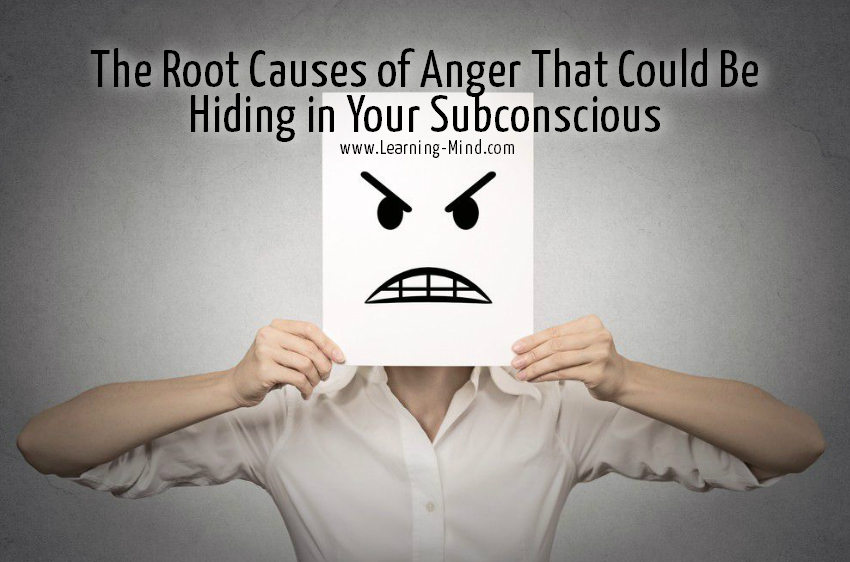
Are we getting angrier? Maybe. Or, perhaps there are just more reasons to be angry around. As our lives get busier, we try and speed up to fit everything in. So if anything gets in our way, it can easily try our patience. But, what are the causes of anger and what can we do to try and avoid it?
Everyone has experienced anger, but defining what causes it can be more difficult. They depend on the intensity of your anger and how you are more likely to react in response to certain situations. Most of the time, anger is controllable. Moreover, it’s actually healthy to feel angry from time to time. Knowing the causes of your anger can help you to keep calm and avoid it escalating to an unhealthy level.
A study by psychologist Howard Kassinove in 1997 revealed that most normal people experience anger a few times a week. 58% of anger episodes include yelling or screaming and less than 10% include physical aggression.
A supporting study by Kassinove (et al) found that people with high trait anger have more physical aggression. It means that they are more likely to fall into this 10%. In general, their anger negatively affects their relationships, their health and their jobs.
For many people, the environment is one of the main causes of anger. It can be born out of frustration, the inability to change a situation, or facing constant a struggle. Stress, financial issues and poor social or familial situations can also contribute to anger.
Psychologist Steven Stosny describes this state of emotion in his book Treating Attachment Abuse (1995). He states that it is possible for anger in these situations to act as a chemical “salve”. The hormone secreted by the brain during phases of anger is the norepinephrine analgesic. It is now clear to see why anger is the go-to emotion when faced with potential adversity.
This theory is supported by Sigmund Freud himself. He said that defence mechanisms exist to protect the personality when the ego is under siege. So, it is possible to see how anger is a natural response and serves as a pivotal psychological function.
Going back to Stosny, he describes this natural response of symptomatic anger as covering up the pain of our “core hurts”. These are feeling ignored, unimportant, guilty, devalued, etc.
This uncovers further theory which was explored by John Bradshaw in his shame-based identity studies. He said that in most cases, anger is a knee-jerk reaction to something that we feel we need to fend off which may threaten us in some way. And, that actually, this reaction is more likely to be due to underlying causes of anger, as opposed to provocation itself.
Some psychologists have moved the Freudian theory of ego threat into the anxiety sphere. In other words, if you have an underlying anxiety about something, it is more likely to manifest itself as anger. However, the defence mechanism is more likely to be of the anxiety itself – not anger.
It is also possible for your past experiences to play a role in anger. Perhaps as a child, you were punished for expressing anger. Perhaps you have grown up thinking it is ok to act out your anger through violence.
Other instances, such as trauma or abuse, can also be one of the causes of anger. These underlying feelings manifest themselves as raw emotion.
Passive aggression can also be a form of this manifestation of anger. However, passive aggression is more likely to be down to an inability to communicate feelings properly.
Passive aggression has also been linked to a disorder called Alexithymia. This is when people enter a state of being unable to communicate. This can manifest itself in a number of ways and there are hundreds of theories to pick this one apart. They range from the fairly common “fine” response to the “how are you” question (even if they aren’t fine) to being physically unable to communicate – usually through an intense stage of anger.
The natural reaction of the inability to communicate is anger, even if the cause of anger isn’t related to the trigger. When out of touch with your deepest values, you are more likely to act on ego – how you expect other people to regard you.
In short, you become more vulnerable – and we go full circle. The vulnerability can lead to anxiety, which in turn triggers the defence response, i.e. anger. It can also manifest as irritability, impatience or sarcasm – all are unpleasant emotions that are motivated by anger.
As paradoxical as it may seem, anger can provide the ideal remedy and can help us to soothe ourselves. Granted, it should be self-soothing of a last resort – and it is preferable to learn some of the causes of our anger. But, as short-term self-medication to all sorts of psychological pain, it may be the only suitable solution to a dilemma.
References: